Photos: Ancient pottery once held olive oil
People living in ancient Israel used olive oil about 8,000 years ago, according to a chemical analysis of pottery shards and vessels found in the northern part of the country. The discovery marks the earliest finding of olive oil in Israel, and possibly the entire Mediterranean, the researchers said. [Read full story on the olive oil discovery]
Pieced together
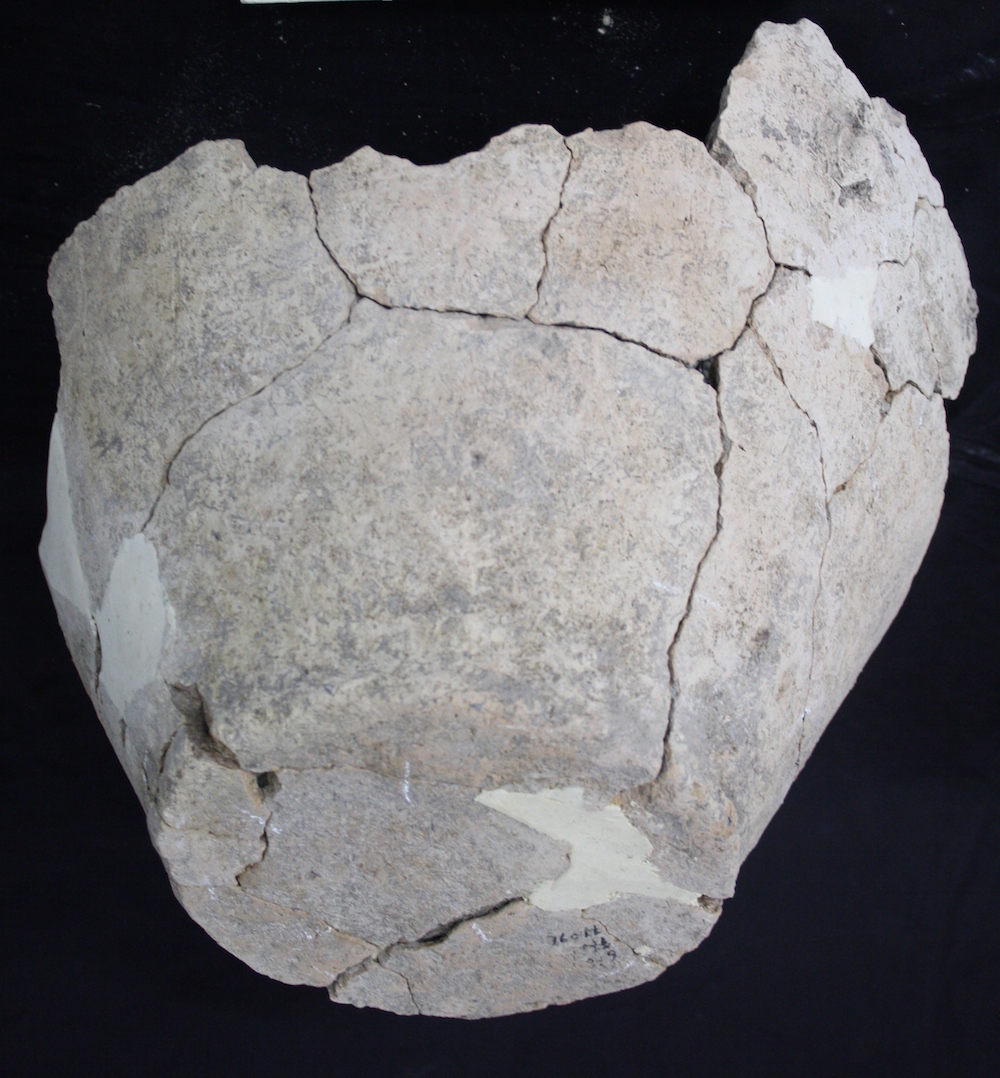
Researchers found the broken pottery vessels in Northern Israel. The excavation, which lasted from 2011 to 2013, was part of an archaeological salvage excavation required by the government before the Netivei Israel Company could widen a highway in the area. (Photo credit: Courtesy Israel Antiquities Authority.)
Accidental find
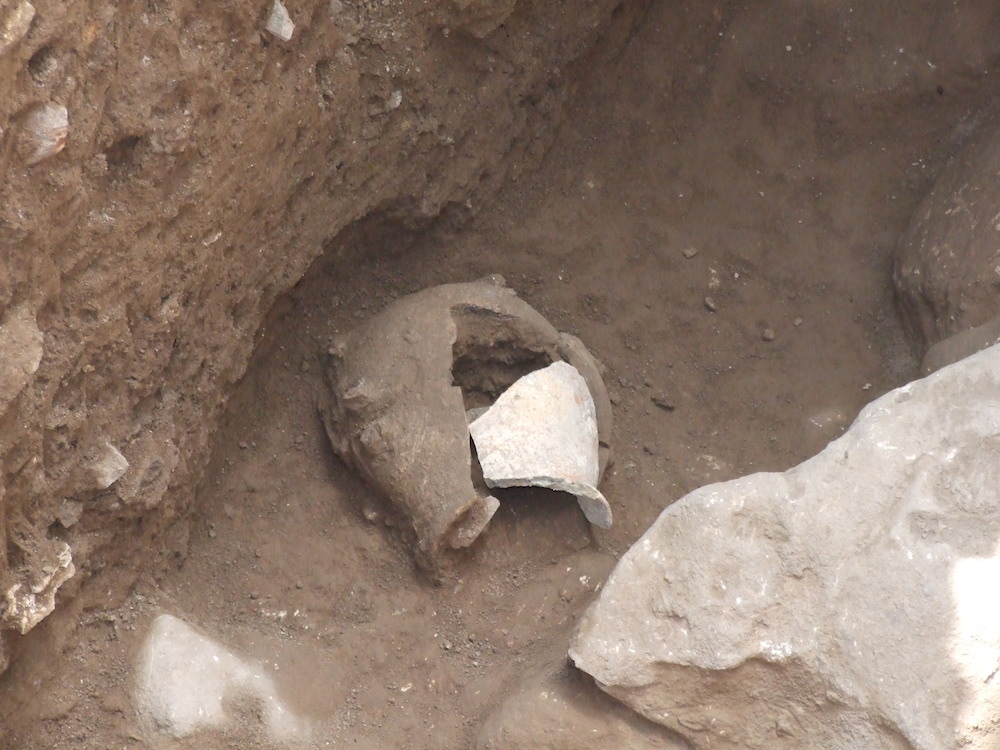
One of the 20 pottery vessels found in Lower Galilee in Northern Israel. Two of the vessels are from 5800 B.C., and contain remnants of ancient olive oil. (Photo credit: Courtesy Israel Antiquities Authority.)
Cracked treasure

One of the reconstructed vessels with olive oil residue inside, which suggests that people during the Early Chalcolithic period were using olive oil as early as the 6th century B.C. (Photo credit: Courtesy Israel Antiquities Authority.)
Sign up for the Live Science daily newsletter now
Get the world’s most fascinating discoveries delivered straight to your inbox.
Pitcher perfect
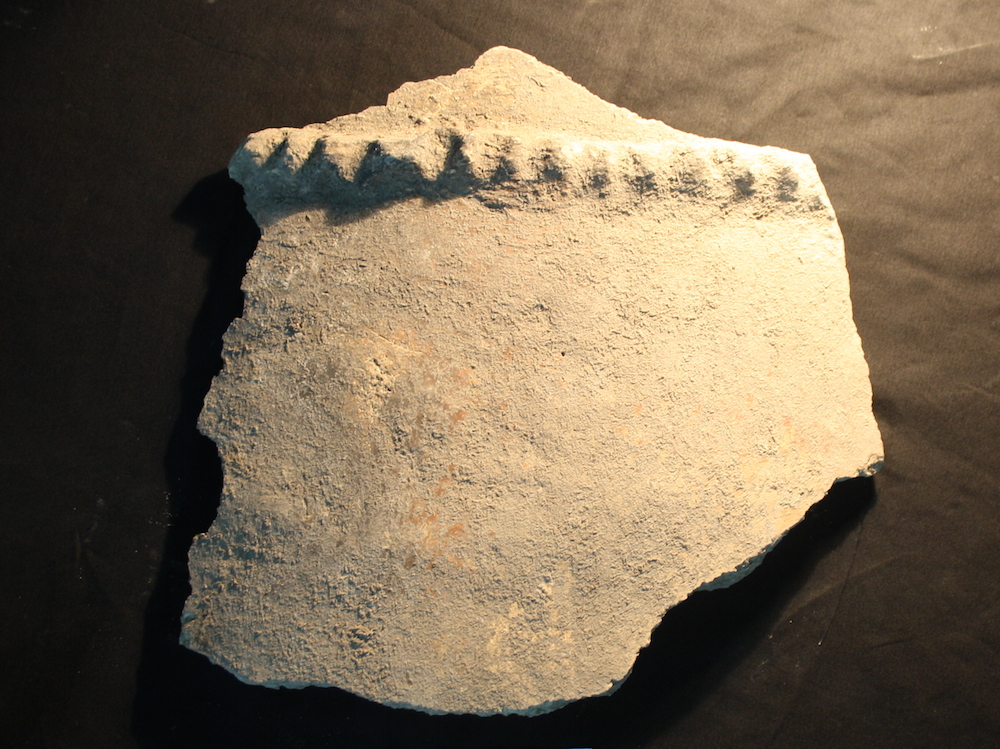
A piece of an ancient clay pitcher from about 4800 B.C. Archaeologists found the artifact during a salvage mission. (Photo credit: Courtesy Israel Antiquities Authority.)
Chemical analyses
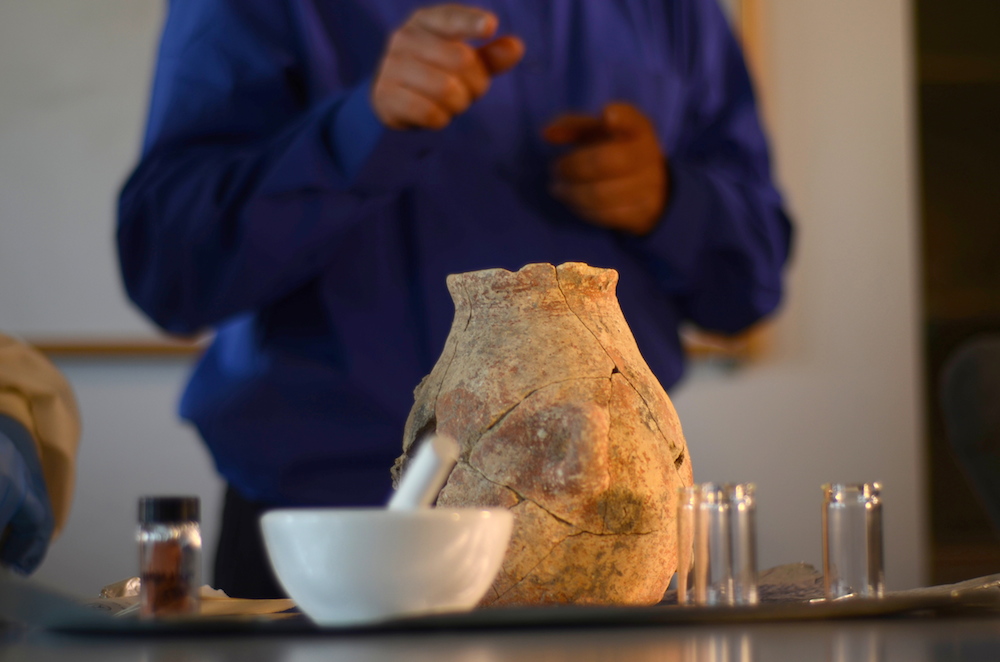
To make sure the ancient vessels once held olive oil, the researchers compared the chemical residues left on the ancient clay to those from a modern-day clay sample with 1-year-old olive oil inside. The analyses of the two were remarkably similar, they found. (Photo credit: Courtesy Israel Antiquities Authority.)
Historical find
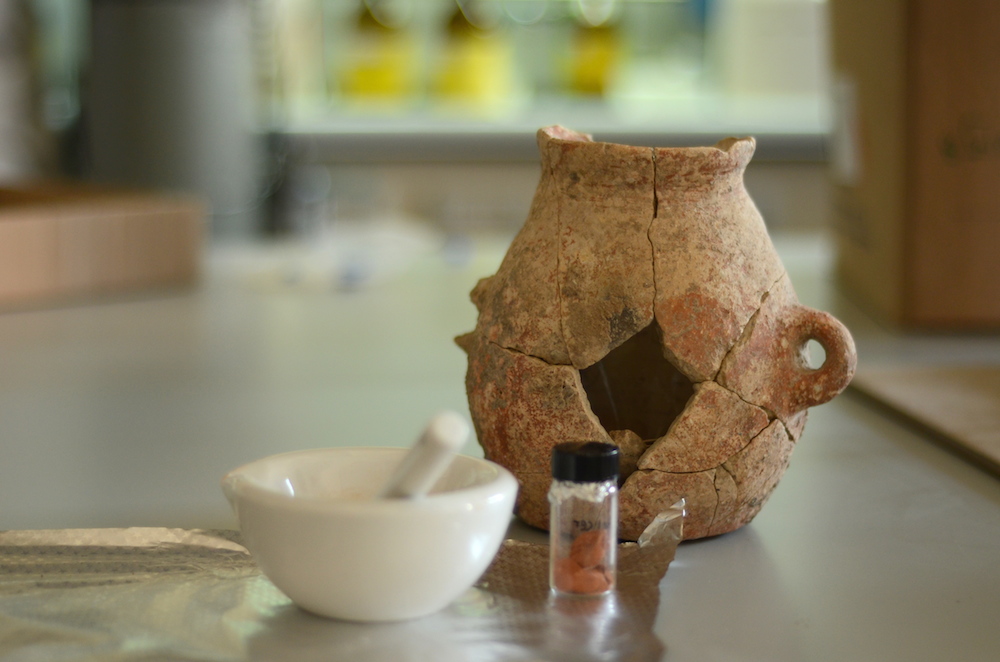
Researchers suspect people began domesticating olive trees about 8,000 to 6,000 years ago, but this is the earliest evidence of olive oil in the country of Israel. (Photo credit: Courtesy Israel Antiquities Authority.)
Follow Laura Geggel on Twitter @LauraGeggel. Follow Live Science @livescience, Facebook & Google+.

Laura is the archaeology and Life's Little Mysteries editor at Live Science. She also reports on general science, including paleontology. Her work has appeared in The New York Times, Scholastic, Popular Science and Spectrum, a site on autism research. She has won multiple awards from the Society of Professional Journalists and the Washington Newspaper Publishers Association for her reporting at a weekly newspaper near Seattle. Laura holds a bachelor's degree in English literature and psychology from Washington University in St. Louis and a master's degree in science writing from NYU.









